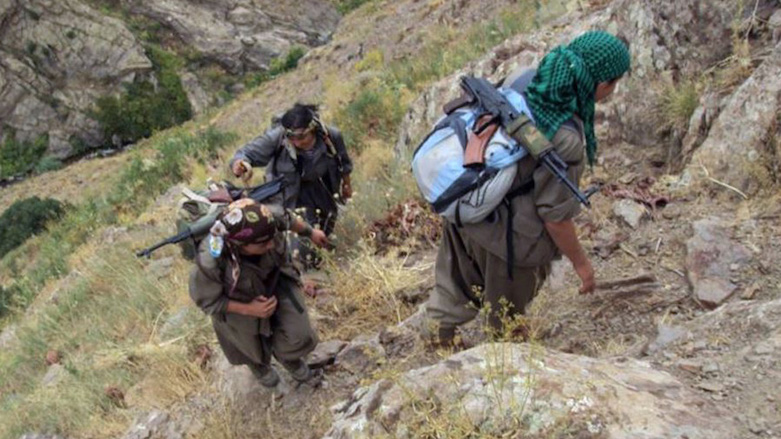PKK-Turkey clashes flare up as casualties rise

ERBIL, Kurdistan Region (Kurdistan24) - Clashes between the Turkish army and the Kurdistan Workers' Party (PKK) intensified on Thursday with deadly clashes erupting in several locations that killed at least five from the government forces and nine Kurdish fighters.
A fight in the mountainous terrain between the Van and Agri provinces near the border with Iran killed three Turkish soldiers and a government-paid Kurdish paramilitary, according to an Army release.
Four other troops were wounded during the clashes.
The same fighting saw nine PKK guerrillas killed, according to the Turkish army.
Pro-PKK Firat news agency put the number of slain Turkish soldiers at four.
There was no statement regarding the clashes by the PKK, at the time of writing this report.
Agri province is where the Turkish government has launched the construction of a 144 kilometers (90 miles) long wall across the border with Iranian Kurdistan to deny freedom of movement to PKK fighters.
The area, especially around the Mount Tendurek, has seen fierce fighting since mid-2015 in the aftermath of the collapse of a two-years held ceasefire and peace talks.
Elsewhere in the Hakkari province which shares a border with both the Kurdistan Region in Iraq and Iran, a Turkish army operation against the PKK resulted in the loss of another soldier.
The operation in the Semdinli district killed one PKK fighter, said the Turkish military.
With the swift emergence in recent years of Kurdish groups to prominence in the fight against the Islamic State (IS) group in Iraq and Syria, Turkey has opted for a more pro-active and offensive military strategy against the PKK at home and abroad.
Urban clashes during 2015 and 2016 saw more than two thousand people killed from both sides, including civilians, said a United Nations report released in January.
Editing by Ava Homa
